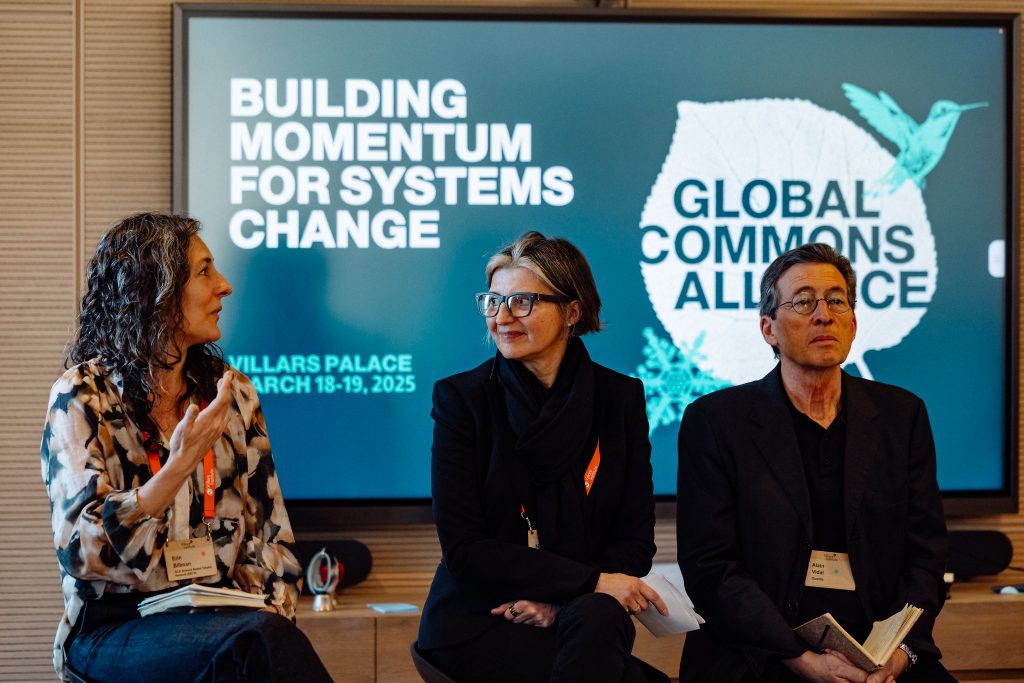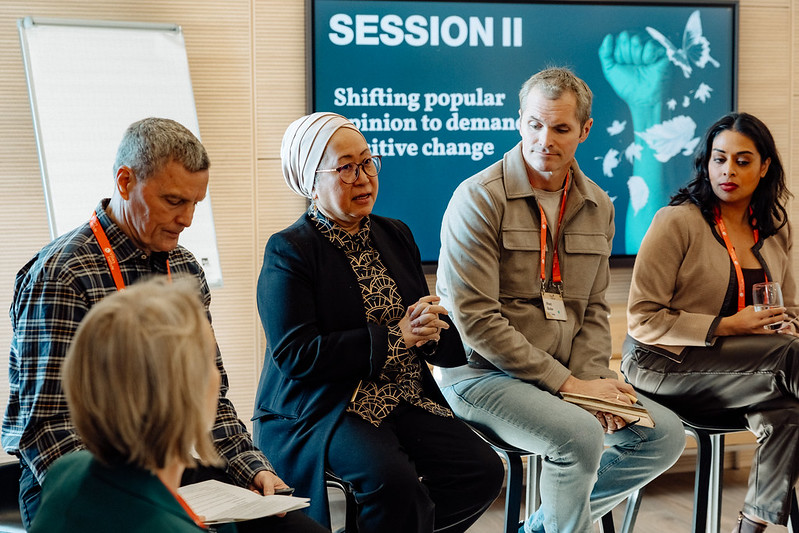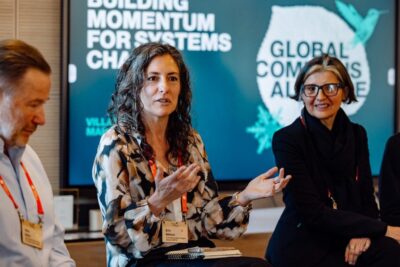Unite for systems change
26/03/2025
Below is the introduction to our latest newsletter. To read newsletters in full, sign up now or subscribe on Linkedin.
Dear Planetary Steward, dear friend of the Global Commons Alliance,
In times of great division and upheaval, let’s not forget that it is still possible to find common ground and unite for change. The Global Commons Alliance and partners joined entrepreneurs, investors, lawyers, scientists and civil society leaders from around the world at the Villars Institute Summit 2025 last week, to spur action for something many of us can agree on: systems change for a Safe and Just future.
Because no matter your age, address or politics, there’s no escaping the impacts of a deeply wounded global commons. The The Villars Institute Summit took place in the same week South Korea battled wildfires and flash floods hit Spain. But as the GCA Earth Commission’s science tells us, if economic systems, resource management and technologies are dramatically transformed, the planet can regain stability. This bold ambition was threaded throughout the sessions in Villars. Kicking off the week of events, we hosted a 2-day workshop, supported by the Villars Institute, on how to build momentum for systems change. Participants agreed science must get “louder” and different sectors need to collaborate more effectively to enhance intelligence sharing between, for example, legal and governance mechanisms, and influencer and activist networks.
We had a brilliant session, moderated by Jane Madgwick, Executive Director, the GCA, on this approach with the Global Alliance for the Rights of Nature (GARN), the Planetary Guardians, the Global Challenges Foundation and the Climate Governance Commission. By combining our knowledge, networks and resources, we agreed that we can move further, faster. A deep-dive session covered how a risk-based assessment based on Planetary Boundaries is providing advice to the national security council in Belgium and how a group of Nordic cities, led by Copenhagen, are exploring how to build on their climate agenda by incorporating Earth system science, including the application of natural capital accounting.

In a session on how science and policy interact with corporate action featuring Natasha Milan Matic, Ph.D. and Randall Krantz from the GCA Accountability Accelerator and Erin Billman, Science Based Targets Network, it was affirmed that as well as understanding future risks of current decisions, companies already see the multiple business benefits of taking action on nature now. In a separate session, there was wide support for a Nature Positive economic model that recognizes and invests in nature as a vital asset rather than an externality. With Japan issuing its first-ever sustainability disclosure standard last week, this no longer seems an environmentalist’s dream but the global financial market’s reality.

Transformational shifts require mass public support. A session with Tim Kelly, Earth HQ, Rhett Ayers Butler Mongabay, Dr. Jemilah Mahmood Sunway Centre for Planetary Health and Sweta Chakraborty, PhD We Don’t Have Time, identified that we can overcome misinformation to shift popular opinion by focusing on solutions as well as problems, linking planetary and human health, and prioritizing influencers. We also identified opportunities for closer collaboration within the Villars community in preparation for COP 30 in Belem, Brazil later this year.

As we continue on the road to COP30 and beyond, we move with the renewed confidence that the urgent need for systems change is shared by a fast growing community of influential leaders whose collective efforts will build peace, security, and resiliency for people everywhere. That is something we can all unite behind.
And, if you’re still left wondering what systems change for a Safe and Just future is really all about, and why and how to get involved, this brilliant guide for young people from The 50 Percentis well worth a read!
With all our best,
The Global Commons Alliance team
Subscribe now and read the rest of our bi-weekly newsletter, including news across GCA.
